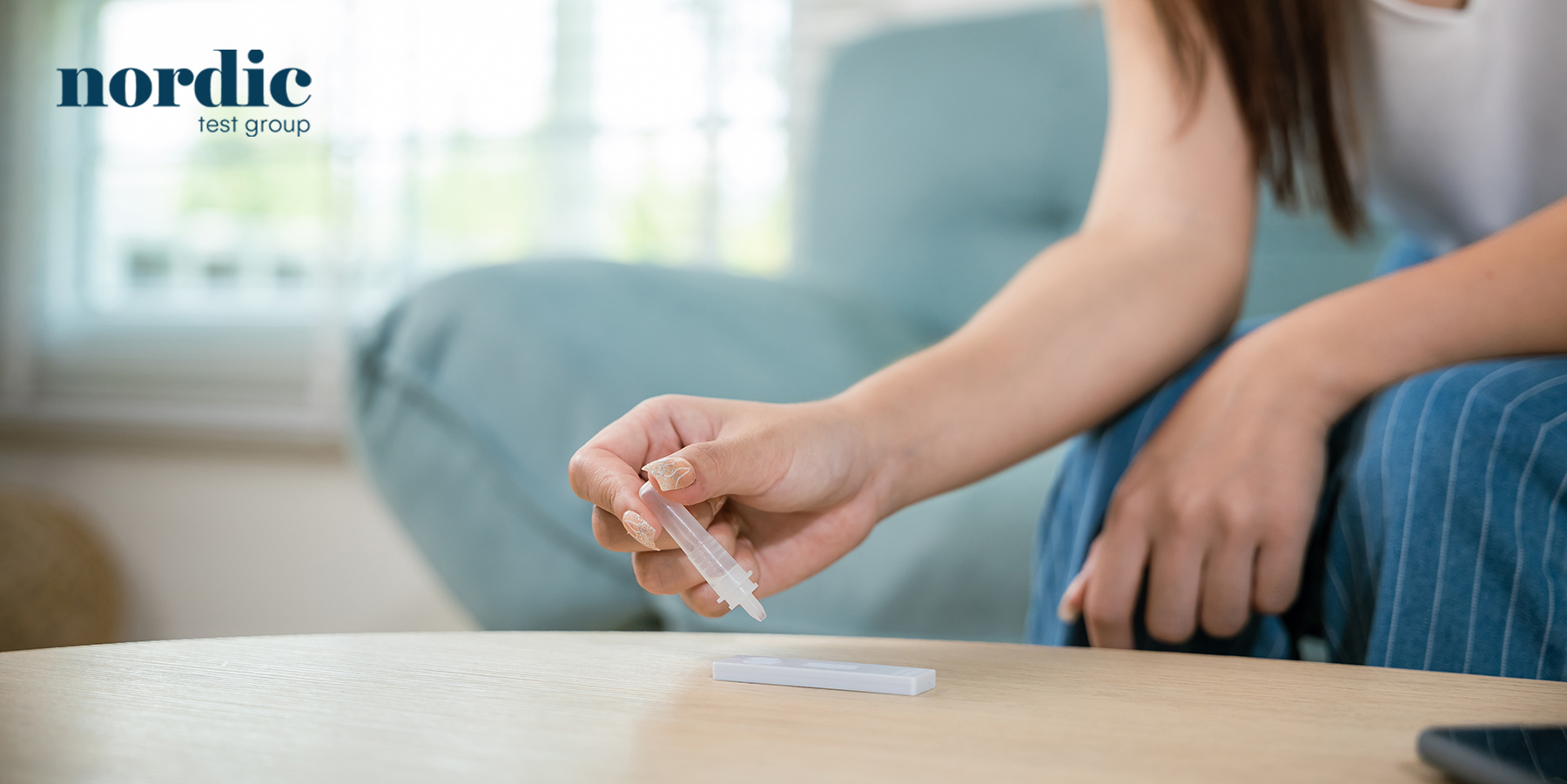Diagnosing with Home Tests: Is It Possible?
Published 2023-11-21 05:22 by Nordictest
Diagnosis involves assessing symptoms and evaluating one's health condition to propose a treatment plan. Home tests can indeed be used to diagnose certain conditions and can be a crucial component of your journey toward better health.
However, there are some concepts to clarify before relying solely on your home tests to manage your health. It's not as though the test will ask questions highly relevant to a syphilis test, herpes, as well as strep throat, and other illnesses.
Who Can Make a Diagnosis?
In general, diagnoses are made by doctors or dentists. This is an incredibly important process to ensure that as a patient, you receive the right care for the symptoms you're experiencing.

To make a diagnosis, doctors and other healthcare professionals often use tests. This helps confirm whether it's a particular bacterium or virus that's suspected. These tests also have significance for future patients as they can be used for statistics and the creation of diagnosis codes to facilitate future consultations and treatment choices.
Diagnosing with a Home Test
When you take a home test, you can determine if you have a particular infection in your body. These tests can detect markers that suggest you have a specific illness, and they can be done with blood, saliva, or urine.
So, in practice, you can indeed receive a diagnosis this way. If you notice symptoms that seem to indicate a sexually transmitted disease and a home test shows a positive result, then you have your diagnosis. However, there are some things to consider before deciding to diagnose yourself in this manner.
What Type of Illness Are You Testing For?
There are illnesses that can be reliably tested for at home. For example, if you have diabetes, you must perform your own blood sugar tests at home to regularly monitor your health condition.

For urinary tract infections, sexually transmitted diseases, and pregnancy, it's also straightforward to obtain reliable tests. These tests will clearly indicate whether you have the marker indicating infection or pregnancy.
At the same time, there are illnesses with similar markers and symptoms. This is crucial to remember. If you're unsure whether you truly have the disease you're testing for, it's wise to consult with a doctor who has the experience and knowledge to provide an accurate diagnosis.
How Accurate Are Home Tests?
A home test can be reliable, but how accurate is it? It depends on the specific test you use and whether you follow the instructions correctly. It's not just about whether the test is sensitive enough to detect markers in your body.
You also need to consider:
- Testing correctly according to the instructions. If anything is unclear, you should clarify it first rather than taking chances.
- Testing at the right time. If you test too early for a specific infection, you might have it without the test detecting it.
- Not waiting too long for the result. A rapid test should not be used in a way that reads the result long after it actually appears. This can also lead to a false result!
Even the best home tests can sometimes yield incorrect results. There are many reasons for this. If you have symptoms and still receive a negative result, it could, of course, be due to another illness. But be aware that the test may not have detected the infection you suspect.
A Home Test Is Confirmation, Not a Diagnosis
It's important to realize that a home test can serve as an essential confirmation, but it won't provide a diagnosis like a doctor or other healthcare provider can. Whether you get a positive or negative result with home tests, it's important to follow up with a consultation.
Sometimes more sophisticated tests are necessary to make a diagnosis. As mentioned, symptoms can resemble another illness, and you might need to test for that illness to rule it out. This isn't something you'll be able to determine on your own without the medical background to recognize it might be something else.
When Diseases Are Symptomless
There are so-called asymptomatic diseases, meaning you carry an infection without any symptoms. Home tests can miss these diseases for two reasons:
- No home test is conducted because there are no symptoms.
- The test is not calibrated to detect the latent infection.
Interpreting Results
Therefore, it's best to consult with a doctor or other healthcare professional to arrive at a correct diagnosis. However, there are actually tests where you don't need to do that. Pregnancy tests are a good example of this.
When you come in for your first ultrasound and mention that your period is overdue and you've taken a home pregnancy test that showed a positive result, no additional test is requested. Here, we can see that the test can be sufficient for a self-diagnosis.

Diagnosis and Follow-Up for Treatment
Diagnosis is one thing, and treatment is another. Your test won't tell you what to do to feel better or to support a healthy pregnancy. This is important to remember. When we view the home test as part of the path to the right treatment, it's phenomenal.
When you receive a positive result, it's essential to take the next steps for treatment. Here, you may have many possible choices. Not all illnesses require medical care, and there are plenty of alternative treatments available today. These can be an option for you if you're not acutely ill but, for example, want to strengthen your immune system after receiving antibiotics for strep throat.
